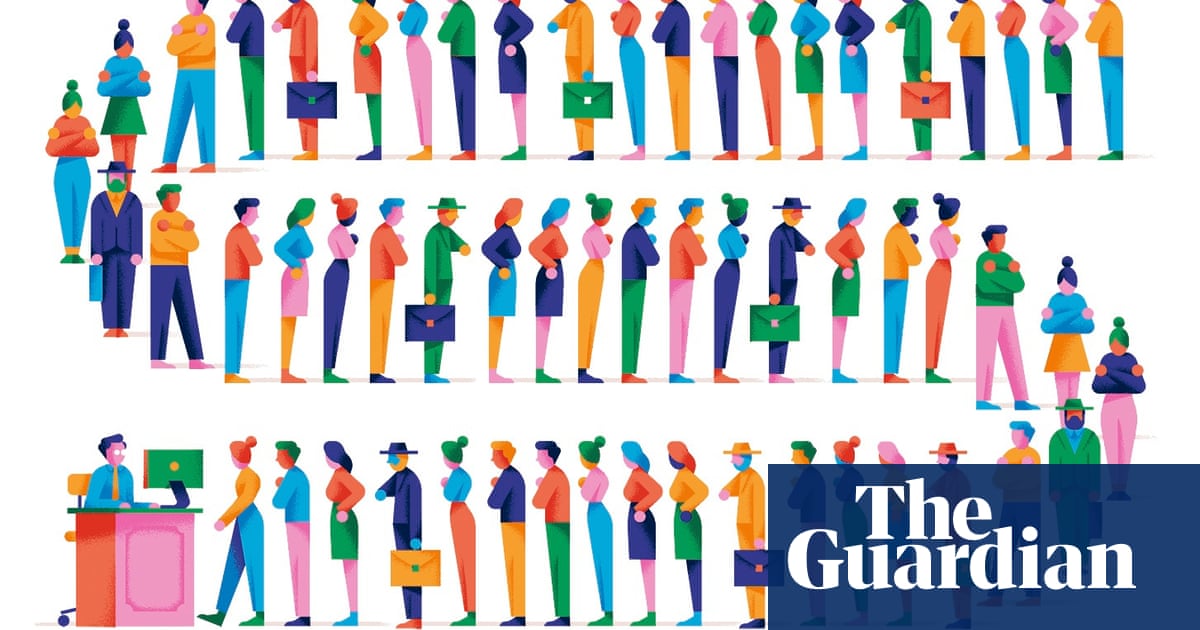
When you next find yourself waiting in a horrendously long queue, you could kill time by contemplating this surprising finding from “queueing theory”, a sub-branch of mathematics which is exactly as it sounds. This particular example comes from the mathematician John Cook; I found it via kottke.org. Suppose there’s a bank with only one staff member on duty, spending 10 minutes with each customer. Customers join the queue randomly, on average once every 10.3 minutes. What’s the average wait time? If you let the situation run and run, eventually it’ll reach a “steady state” of five hours of waiting. Add one more staff member, and that falls to three minutes. To be fair, in the real world, no bank would be open long enough for things to reach that point. But the lesson is clear: having even a little slack in the system isn’t merely helpful. It makes all the difference in the world.
What goes for bank queues goes for human lives, too: having no slack, whether of time or money, is an even bigger drawback than you might have thought. In their book Scarcity, behavioural scientists Eldar Shafir and Sendhil Mullainathan show that “scarcity captures the mind”. When you don’t have enough of something, you fixate on it, so it occupies much more mental bandwidth. If you’re not sure you’ll have enough money to feed your family all this month, you have an obvious problem, but also a non-obvious one: the toll on your mental resources, research suggests, will undermine your ability to make wise spending decisions, damaging your chances of escaping your predicament.
Even if you’re not facing financial scarcity, you probably still experience an absence of slack in the form of time. And here the same applies: when you’re too busy, the mental experience of busyness impairs your ability to manage your time wisely, so you procrastinate more, or take on too many commitments, leaving you busier still. Even if you do decide to force some slack into your plans, you’ll discover the intractable law that “slack wants to be used”. Sure, I can resolve to leave work early on Friday to spend an hour strolling in the park – I’m lucky to have that option – but when it comes to Friday afternoon itself, any mildly urgent task will prove more powerful than my initial intention, and I’ll end up rooted to my desk.
One answer, as the creativity coach Jessica Abel explains, is to do all you can “to take moment-to-moment decision-making out of your hands”. If it’s up to you, at any given point in time, to decide to take a breather or cross off more tasks, you’ll usually choose the latter. But if you’ve made plans to meet someone, or arranged for your internet access to cut off, or designed a geeky schedule in felt tip and pinned it on your wall – if you’ve done anything, in other words, to surrender some control over your actions – you might not. The same goes for automatically having money deducted into a savings account before you can spend it, as opposed to relying on moment-to-moment frugality. These are the two eternal truths of slack: it really, really matters – but you can’t trust yourself to remember how much you need it.
Read this
In her book Growing Gills, Jessica Abel explains how to find time for creative work by facing the truth about the trade-offs you’ll need to make.
Source: TheGuardian
